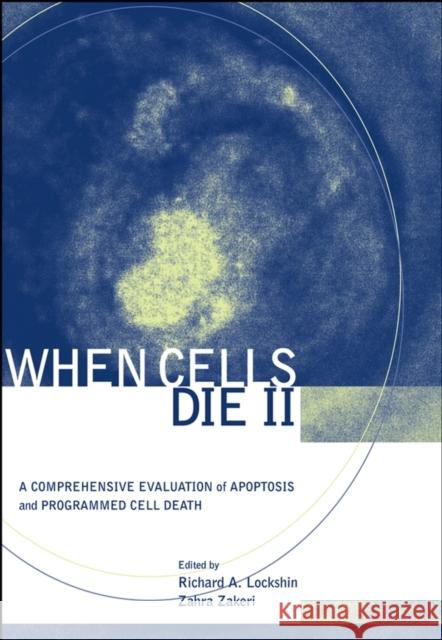When Cells Die II: A Comprehensive Evaluation of Apoptosis and Programmed Cell Death » książka
When Cells Die II: A Comprehensive Evaluation of Apoptosis and Programmed Cell Death
ISBN-13: 9780471219477 / Angielski / Twarda / 2003 / 568 str.
Cell death is fast becoming one of the most dynamic areas of biological research-involving as it does the study of apoptosis and programmed cell death and the role these phenomena play in development and homeostasis on the one hand, and aging and disease on the other. The profound implications for medicine and agriculture from the manipulation of these processes have spawned a deluge of research papers, articles, approaches, and methods-making it difficult for scientists to get an overview of the field.
When Cells Die II: A Comprehensive Evaluation of Apoptosis and Programmed Cell Death offers the most thorough, cutting-edge coverage of this field since publication of the acclaimed first edition. Leading international researchers present an up-to-date yet accessible survey ranging from the history of cell death science to its modern methodology. Extensively revised to include major advances in research, this new edition features relevant discussion of:
* The impact of genomics and proteomics
* Gene therapy and pharmacogenetics
* The role of mitochondria
* Caspase-independent and non-apoptotic cell death
* Evolution of mechanisms
With the manipulation of programmed cell death in clinical situations now in the foreseeable future, When Cells Die II also addresses the role of apoptosis in specific organ systems-the immune system, nervous system, and gastrointestinal tract-as well as different disease states, including viral infection, cancer, and myocardial infarct.
Expertly edited to provide detailed cross-referencing, consistency of style, and a logical progression of topics, When Cells Die II is the definitive resource for understanding current cell death science. It will prove an invaluable text for advanced undergraduate, graduate, and medical students, postdoctoral fellows, scientists, and clinicians in cell biology, immunology, developmental biology, neuroscience, and cancer research.











